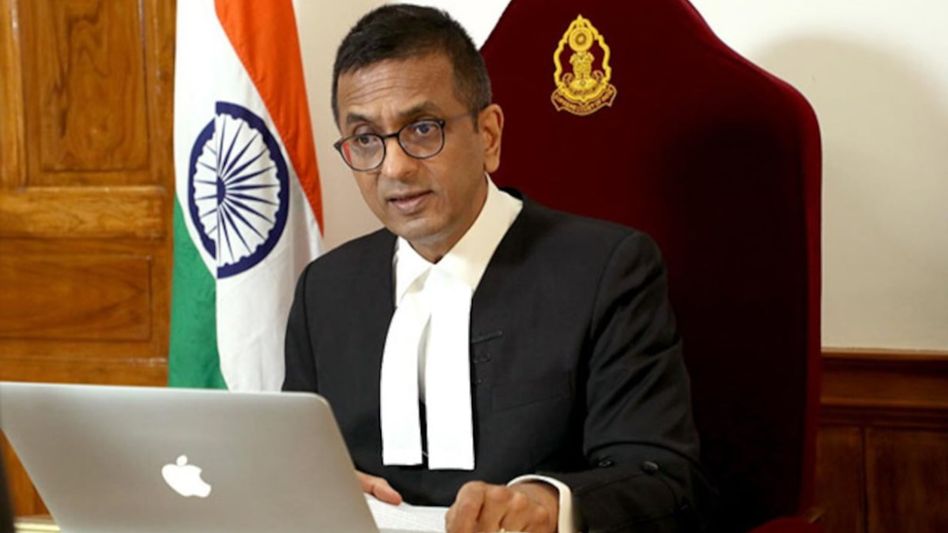‘Indian courts have become democratic spaces of discourse’, claims CJI DY Chandrachud
Other obstacles that need to be addressed, according to CJI, include the digital divide, representational asymmetry between parties in the same dispute, and low-connectivity areas.

Speaking during a J20 meeting in Brazil, Chief Justice Chandrachud stated, "We need to rethink our courts as democratic forums for discussion, rather than as oppressive 'empires.'" COVID-19 forced our court systems to adapt quickly, pushing their boundaries. Courts evolved beyond being merely gloomy physical locations."
Presidents of the Supreme and Constitutional Courts of the G20 member nations, along with delegates from the European Union and the African Union, convene at the J20 Summit, which is supervised and arranged by Brazil's Federal Supreme Court (STF). This gathering encourages dialogue on important subjects like environmental sustainability, social fairness, and the use of technology to enhance judicial efficiency.
"We believe that sunshine is the best disinfectant and that accurate and accessible information is an antidote to disinformation," CJI Chandrachud said in her speech to the conference. Through the creation of an ecosystem of stakeholders and the facilitation of judgement access, the Brazil Supreme Court's Programme to Fight Disinformation aims to combat misinformation."
"It is quite common for judges to engage with a bar and play the devil's advocate to extract their best response," CJI Chandrachud stated. This is occasionally inaccurate, though, when deceptive online footage of the proceedings and the bench's opinion are shared. Thankfully, there is a strong network of legal journalists covering the proceedings in real time and assisting in the debunking of false information. Supreme Court Vidhik Anuvaad Software, or SUVAS, is a machine learning and artificial intelligence Digital SCR (Supreme Court Records) offers easy access to Supreme Court rulings, with over 30,000 previous rulings freely available. CJI emphasised.
Other obstacles that need to be addressed, according to CJI, include the digital divide, representational asymmetry between parties in the same dispute, and low-connectivity areas. When discussing judicial efficiency, we need to include the entire judicial process rather than just the effectiveness of the judge.Efficiency is found in these procedures as well as the results, which must guarantee a free and impartial trial. According to Dr. Amartya Sen, "conversion factors" are "the degree to which a person can transform a resource into a functioning" that determine substantive opportunity.
Copyright©2025 Living Media India Limited. For reprint rights: Syndications Today









